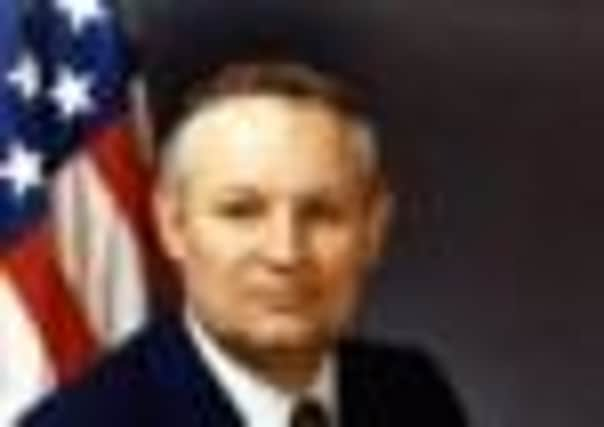Megrahi probe ‘failed to speak to FBI agents’


Oliver “Buck” Revell, the former associate deputy director of investigations for the Federal Bureau of Investigations, has reacted angrily to the examination into the case by the Scottish Criminal Cases Review Commission (SCCRC).
In an e-mail seen by Scotland on Sunday, Revell expressed frustration that no-one from the FBI was consulted by the SCCRC when it compiled its report into the safety of Megrahi’s conviction.
Advertisement
Hide AdAdvertisement
Hide AdThe controversy surrounding the Lockerbie trial re-ignited following the publication of John Ashton’s book Megrahi: You Are My Jury, in which the convicted bomber – now back in Libya after being released on compassionate grounds as he is suffering from terminal cancer – proclaims his innocence.
The furore increased when extracts of the SCCRC’s report were leaked last week.
Excerpts from the confidential SCCRC Statement of Reasons document, which gave Megrahi, 59, grounds for appeal, identified six different areas that could have constituted a miscarriage of justice.
Publicity surrounding the document has angered investigators who headed up the US arm of the inquiry into the killing of 270 people when Pan Am Flight 103 exploded over Lockerbie in December 1988.
In his e-mail to government and legal officials in Scotland and the US, Revell complained that the SCCRC failed to interview members of the FBI for its Statement of Reasons. The e-mail pointed out that the original Lockerbie investigation was carried out by Scottish police, Scotland Yard, the German BKA and the FBI.
Revell added: “I don’t know what the SCCRC expects to determine when it is not even interviewing the actual investigators involved in solving this terrible crime.”
The SCCRC document is said to have concentrated on Tony Gauci, the Maltese shopkeeper who testified that Megrahi bought clothes from his shop which were later found in the suitcase carrying the bomb.
The SCCRC also focused on “undisclosed evidence”, including a police statement that showed Gauci had been handed a magazine with a photograph of Megrahi weeks before he singled him out in an identity parade.
Advertisement
Hide AdAdvertisement
Hide AdAlso identified by the SCCRC was undisclosed evidence about Gauci’s interest in rewards. The SCCRC discovered three police documents that indicated that, before first picking out Megrahi from a photo line-up in 1991, Gauci was aware a substantial reward was on offer from the US government.
Ashton’s book claimed that a Scottish policeman’s diary entry recorded an FBI agent saying that he had the authority to arrange “unlimited money” for Gauci. The Commission was unable to establish whether the FBI had actually made an offer.
One of Revell’s senior colleagues Richard Marquise, the FBI agent, who led the Lockerbie investigation on the ground, said that as far as he was aware no money had changed hands.
Speaking to Scotland on Sunday, Marquise said: “On the issue of witnesses being paid, no witness [was paid] to my knowledge. What some police officer or FBI agent might have told somebody in the corner in a dark room in the middle night that I don’t know about, I can’t vouch for that. But everybody that worked for me were under orders that they were not allowed to tell people that they could get money for this case. So, as far as I know, nobody was promised or paid money to testify.”
Revell’s disappointment at the FBI’s lack of involvement was shared by Marquise.
He said: “I don’t know if you can say you have done a comprehensive report unless you speak to key people.
“To me it is an incomplete report whatever they are going to publish.
“They never did speak to the people who might be able to shed some light on whatever it is that they were looking to find out.
Advertisement
Hide AdAdvertisement
Hide Ad“If you are going to say you have done a complete investigation, you should talk to everybody who was key, and I like to think people in the FBI were key. I like to think some people in the CIA were key and they could and should have been interviewed.”
The SCCRC was unavailable for comment.